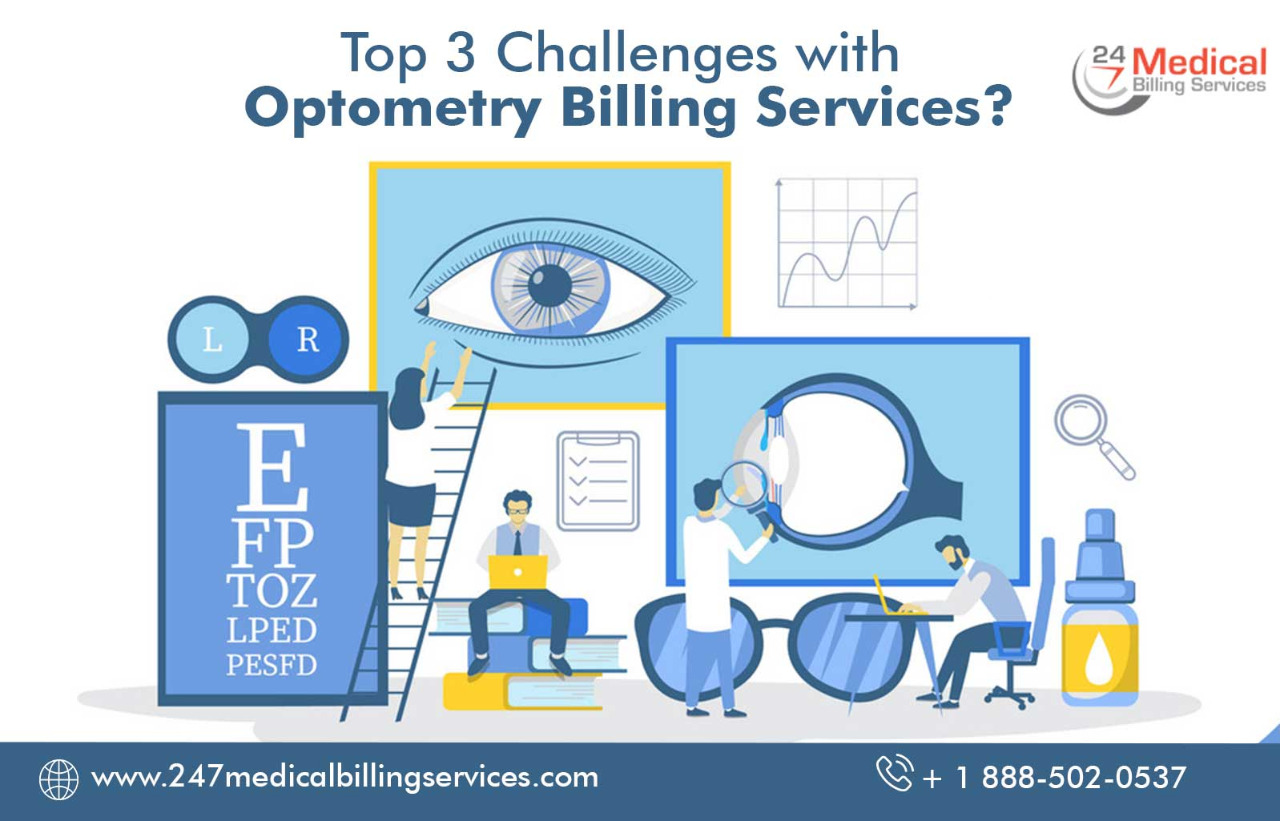
Top 3 Challenges with Optometry Billing Services
Nowadays, the financial health of your eye care practice depends more on the continuous cash flows than ever. In fact, keeping up with proactive optometric billing solutions in this ever-changing industry is putting strains on the optometrists and their staff worldwide. All this have resulted in either the closure of many eyecare practices or alteration of office hours as per the guidelines from AAO,CDC, and AOA.
That’s why there is a need to focus more on the performance of claim audits before it is too late to receive the complete amount of reimbursements. One such move of the claim audits is to understand the challenges faced by the optometry practices in billing and coding their tasks. Let’s have a deep understanding of the top 3 challenges faced by the optometrists in billing and coding their services:
Use of Incorrect Modifiers, Resulting in Claim Denials
Modifiers are the best choice to describe a service accurately, but they can lead to claim denials if used incorrectly. Therefore, you need to be very careful while using modifiers for your optometry practice.
Some of the frequently used modifiers for optometry practices include:
- RT/LT for the right and left eye or lid along with the E1-E4 modifiers used for differentiating the right and left & inferior and superior lids.
- -24 modifier is applicable when a doctor undertakes an office visit during the period of an unrelated procedure. For instance, a visit performed by a doctor when a patient who had an eye cataract surgery in the last 90 days and comes up with an unrelated ocular issue in the other eye.
- To get the reimbursement for the office visit, you have to add a -24 modifier while submitting the claim to the payer.
- -25 modifiers are used for performing two unrelated and separate eye procedures on the same day.
- -55 modifiers are necessary to be used when you co-manage a surgical eye procedure and perform only the post-operative care with a surgeon.
- Additionally, if you perform post-operative care on a patient who had a surgical repair on both eyes, you need to use a -79 modifier to code the second eye. Otherwise, your reimbursement will be denied on account of duplicate procedures.
Claims Submissions Before Being Fully Credentialed or Improper Credentialing
Unless your application gets processed and approved, you should not see patients on that specific insurance plan. Though you can use backdate claims in Medicare, you should establish a starting date before attending the Medicare patients. The starting date is mostly when Medicare initiates the processing of your application for the claim.
Additionally, if you want to receive the complete reimbursements, then you must submit a claim to Medicare within a year of the date of service. Otherwise, submitting a claim after 12 months indicates the claim denials and entitles you to collect only 20% of the exam fee from the patient, not covered by Medicare. Furthermore, other insurance carriers might have a deadline of 60 days from the date of service. So, make sure to check the deadlines thoroughly and submit your claims accordingly.
Also, you must have the signature of either patient or the guardian for the under-aged patients on the ‘Signature on File’ form to share your clinical information with the insurance payers for processing your application. Therefore, you won’t receive the reimbursement amount from the insurance carriers if you neither share the required information (need patient’s permission) nor submit the claims with the correct coding.
Staying Updated with the Regulations
Did you know that the ‘Meaningful Use’ has shaken the entire healthcare industry with significant mandates? In fact, now the main concern for the eye care practices is regarding the MACRA and MIPS. Additionally, a long list of ICD-10 codes changes is waiting in the queue for reporting. However, staying on top of these ever-changing regulations can prove to be quite a difficult task. Apart from these frustrating changes, the changes are also there to ensure that your patients get quality care whenever they are in need.
One way to remain updated with these regulations is to select the best EHR and practice management platform. This solution comes up with the support of a clinical decision and the capability to generate and verify the ICD-10 codes.
Billing Service Provider not an Optometry Expert
Being a billing service provider and an optometry expert is a different thing. How can you expect yourself as an optometry expert to undertake medical billing and coding like a pro? That’s why many optometrists choose to outsource optometry billing services to professional billers and coders simply to avoid claim denials and other data recording errors. In fact, optometry billing requires high-quality specific billing and coding, which is something not every billing service provider can handle. Therefore, outsourcing to the 24/7 Medical Billing Services is the solution to your problem that has a team of specialists with updated knowledge of all the specific requirements.

.png)